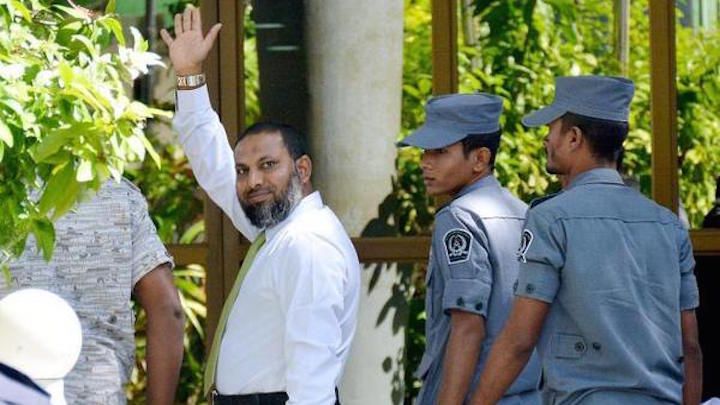Sheikh Imran transferred to house arrest
The criminal court today transferred Adhaalath Party President Sheikh Imran Abdulla to house arrest, citing the state’s violation of an order to provide access to medical care. A second hearing of his terrorism trial took place today, four months after charges were first pressed.

13 Oct 2015, 09:00
The criminal court today transferred Adhaalath Party President Sheikh Imran Abdulla to house arrest, citing the state’s violation of an order to provide access to medical care.
The second hearing of Imran’s terrorism trial took place this afternoon, four months after the religious conservative party’s leader was charged with terrorism. He is accused of inciting violence during a speech at an anti-government rally on May 1.
Imran has been under state custody for more than 160 days.
His trial is resuming at a time of heightened tension in Malé following an explosion on President Abdulla Yameen’s speedboat. The president escaped unhurt. The government says the blast was an assassination attempt.
Become a member
Get full access to our archive and personalise your experience.
Already a member?
Discussion
No comments yet. Be the first to share your thoughts!
No comments yet. Be the first to join the conversation!
Join the Conversation
Sign in to share your thoughts under an alias and take part in the discussion. Independent journalism thrives on open, respectful debate — your voice matters.




